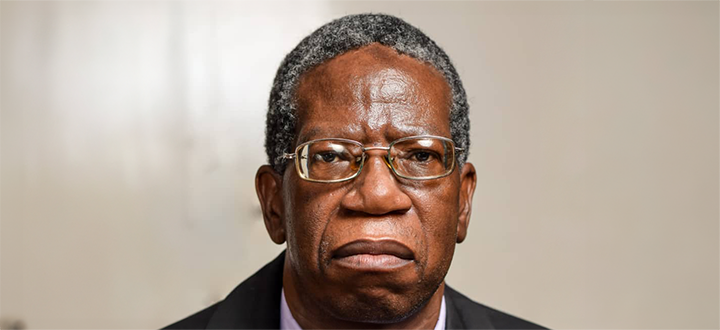College of Human Sciences
Mental health among men in the workplace needs more attention
In most countries, June is considered Men's Mental Health Awareness Month. Researcher Dr Ruchi Sinha unpacked men’s mental health issues in an article published in the Harvard Business Review. Sinha asked a valid question in her article, namely, how often have you seen men openly discuss their mental health at work? This is a question we hardly hear in the academic domain. As a journalist in the academic space, I have interviewed many male colleagues, and most of them have never mentioned or touched on how important it is to take care of their mental health.

Dr Daniel Letsoalo, senior lecturer in the Department of Psychology
Many males in academia are in survival mode; they are under pressure to publish articles, to provide for their families and to climb the academic ladder of being rated by the National Research Foundation. While many personal factors can influence someone’s mental state, the workplace can be an incredibly triggering environment. Precarious employment conditions, such as low job security, part-time or shorter employment contracts, and an unhealthy working environment, are critical predictors of poor mental health in men.
Men, like everyone else, experience mental health challenges, but certain mental health conditions are more common among men. These conditions include, among others, substance abuse disorders, antisocial behaviours and psychotic disorders. Since men find it difficult to open up about their difficulties, they may try to find alternative ways to cope, and one such common way is to abuse substances. Hence, we find a high number of alcoholics in the academic workplace.
Dr Daniel Letsoalo from the Department of Psychology says there is a plethora of reasons why men are reluctant to seek mental healthcare, including, among other things, embarrassment and shame, fear of being ridiculed, fear of being emasculated, the way they were socialised, pressure around societal norms, and reluctance to open up and be vulnerable. "For example," he continues, "in some cultural groups in South Africa it is believed that mental health conditions such as depression are not real and, as such, anyone who suffers from depression is viewed as having a 'weak character'."
Letsoalo highlights certain factors that research has found to contribute to men’s reluctance to seek mental health support, including the role of culture, socialisation into traditional masculine gender roles, stigma (labelling and social rejection), fear of being emasculated (ie being viewed as weak), the belief that seeking mental health support is only for those who are "mentally ill", and fear of being vulnerable.
Letsoalo states that line managers can support male colleagues who struggle with mental health challenges by creating, to the best of their ability, a safe and stress-free environment, providing intermittent training on stress management, providing access to support through training and time off, where warranted, and normalising mental health conversations. Providing mental health support to men is a complex issue, but line managers should do what is feasible. Although mental health support for men is complex, it has to be catered for within the work environment.
"Mental health among men in the workplace deserves to receive even more attention now than it has in recent years due to the increasing number of mental health conditions in Africa, as alluded to by the World Health Organisation," says Letsoalo. "Failure to do so will have long-term ramifications for both men and employers."
The Unisa Psychotherapy Clinic offers the following free services:
- Child therapy
- Individual therapy
- Couples therapy
- Family and group therapy
Contact: psychclinic@unisa.ac.za
* By Nnana Martina Jege, Communication and Marketing Specialist, College of Human Sciences
Publish date: 2024-07-19 00:00:00.0


 Mental health among men in the workplace needs more attention
Mental health among men in the workplace needs more attention
 "I owe everything to Unisa and my late supervisor's priceless mentoring"
"I owe everything to Unisa and my late supervisor's priceless mentoring"
 Majikijela - a queer scholar raising homosexuality awareness through his work
Majikijela - a queer scholar raising homosexuality awareness through his work
 Unisa and Inqaba Biotec unveil groundbreaking DNA research platform
Unisa and Inqaba Biotec unveil groundbreaking DNA research platform
 College of Law appoints esteemed scholar as executive dean
College of Law appoints esteemed scholar as executive dean